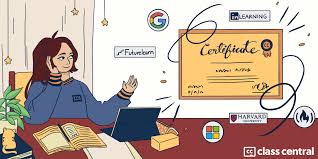Navigating the real estate industry involves a nuanced understanding of various factors, including market trends, legal regulations, and effective negotiation techniques. Aspiring real estate professionals often face a critical decision: Should they invest in formal education, or is practical experience sufficient for a successful career? This question, “Do You Need College to be a Real Estate Agent?” captures the essence of this debate.
Let’s explore the benefits of both formal education and practical experience in real estate to help you make an informed decision.
The Case for Formal Education
Let’s look at the benefits of formal education below:
Comprehensive Knowledge and Skills
Formal education provides a structured learning environment where aspiring real estate agents can gain in-depth knowledge about the industry. College programs often cover essential topics such as real estate law, finance, property management, and market analysis. These subjects are crucial for understanding the complexities of real estate transactions and the legalities involved.
In addition to theoretical knowledge, college programs often include practical components such as internships and case studies, offering students a chance to apply what they’ve learned in real-world scenarios. This blend of theory and practice helps build a solid foundation that can be invaluable when starting a career in real estate.
Networking Opportunities
One of the significant advantages of pursuing formal education is the opportunity to build a network of industry contacts. Colleges often have strong connections with local real estate firms, offering students access to internships, job placements, and mentorship programs. Networking with professors, industry professionals, and fellow students can provide valuable insights and open doors to career opportunities that might not be available otherwise.
Moreover, being part of a college community allows students to participate in real estate clubs, workshops, and seminars, further enhancing their knowledge and skills. These extracurricular activities can be crucial in staying updated with the latest industry trends and developments.
The Value of Practical Experience
Here are the benefits of practical experience:
Hands-On Learning
Practical experience in real estate offers a different kind of education—one that is rooted in real-world application. By working directly in the field, aspiring agents can develop a keen understanding of market dynamics, client behavior, and negotiation strategies. This hands-on approach allows individuals to learn by doing, which can be incredibly effective for mastering the day-to-day tasks of a real estate agent.
For many, starting with an entry-level position in a real estate firm can provide a wealth of experience. Tasks such as conducting property tours, preparing marketing materials, and assisting in negotiations help build a practical skill set that is directly applicable to a career in real estate. This experiential learning can often accelerate professional growth and lead to quicker advancement within the industry.
Immediate Income Potential
Another significant benefit of gaining practical experience is the potential for immediate income. Unlike formal education, which requires a financial investment and time commitment, practical experience allows individuals to start earning right away. This can be particularly appealing for those who are eager to begin their careers and achieve financial independence.
Working in the field also offers the chance to earn commissions, which can be a substantial source of income for successful agents. This immediate financial return can provide the motivation and resources needed to continue developing one’s career without the burden of student loans or tuition fees.
Blending Both Approaches for Success
While the debate between formal education and practical experience is ongoing, the most successful real estate professionals often find a balance between the two. Combining the comprehensive knowledge gained through formal education with the hands-on skills acquired in the field can create a well-rounded professional capable of navigating the complexities of the real estate industry.
For example, an individual might choose to complete a college degree in real estate or a related field and then seek internships or part-time positions to gain practical experience. This approach allows for the integration of theoretical knowledge with real-world application, providing a more holistic understanding of the industry.
Continuous Professional Development
The real estate industry is constantly evolving, with new regulations, technologies, and market trends emerging regularly. As such, continuous professional development is crucial for long-term success. Whether through formal education or practical experience, staying informed and adaptable is key.
Many real estate professionals pursue additional certifications and training programs throughout their careers to stay updated with industry changes. These programs, often available through professional organizations and real estate schools, can provide advanced knowledge and specialized skills that enhance one’s expertise and marketability.
Conclusion
Ultimately, the choice between formal education and practical experience in real estate depends on individual goals, preferences, and circumstances. While formal education offers comprehensive knowledge and valuable networking opportunities, practical experience provides hands-on learning and immediate income potential. By blending both approaches, aspiring real estate agents can maximize their learning opportunities and position themselves for long-term success in this dynamic industry.
As the real estate landscape continues to evolve, the ability to adapt and learn from both educational and practical experiences will remain crucial. Whether through traditional college programs, on-the-job training, or continuous professional development, the path to a successful real estate career is multifaceted and unique to each individual.

David Weber is an experienced writer specializing in business and related fields, delivering insightful and informative content for diverse audiences.





